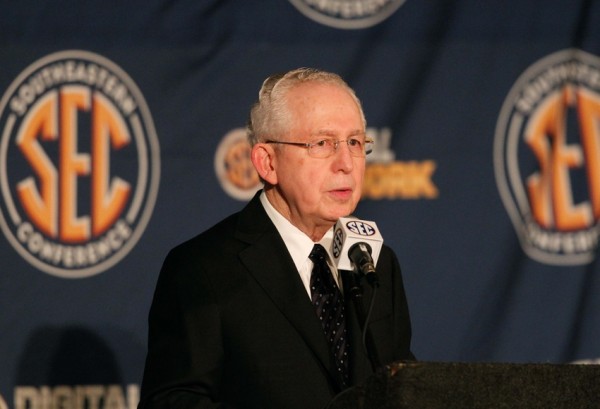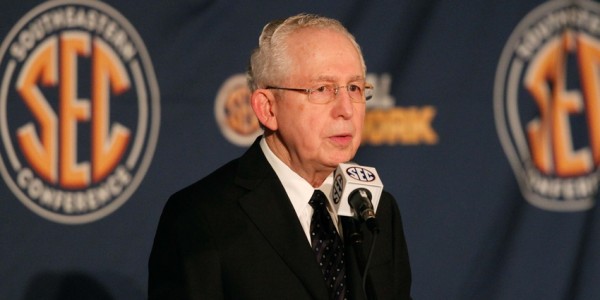
College sports are changing, and in a way that will start bringing in money to the athletes. Now is a time of meetings and big decisions, with SEC, probably speaking for the five power conferences, threatening the NCAA with a split that will form a new division in college sports or at least football, as the affects of big money move from realignment to what possibly might be a completely new look for the sport.
The lawsuit against video game makers from three separate groups of college athletes resulted in a settlement for $40 million being paid for improperly using the likenesses of athletes. This leaves the NCAA alone in the Ed O’Bannon antitrust trial, and while the NCAA is trying to do everything in its power to delay and squirm their way out of this situation, the day of schools not paying something to their athletes seems to be gone, at least for the programs with money to spend on their players.
The SEC wants autonomy on its decisions. The big conferences want no one to interfere. And what they want right now is to pay student athletes a $2000 pay-for-play stipend, which was blocked in the NCAA voting by the smaller schools, who are a bigger block overall (354 schools, each getting one vote). It might mean that schools will finally pay players legally, but it also means that some schools will be able to afford it while others won’t.
SEC schools are going to make more than $20 million next season from the conference payments, but that assessments suggest it’ll grow to around $38 million in a few years. With so much money coming in, and the same goes for the other conferences as well, it’s harder and harder to ignore the demand for some payment from the students, and for schools that use their football program as their flagship, it simply makes sense.
But what does this do to college sports? Big schools and especially the SEC usually have the advantage when it comes to recruiting anyway. Now, for kids who come from difficult social and economic situations, the decision to choose a school that can pay them over one that can’t is going to be another factor to consider, and probably work in the big school’s favor.
The SEC doesn’t want to create a seperate division, or at least that is what they’re saying. What they want is the NCAA to stay out of their business, even if it creates another unfair advantage in the dog-eat-dog world of college sports. In truth, big schools are probably paying players in one way or another most of the time, usually avoiding the getting caught part of it all. Now it’ll be legal, and if the NCAA doesn’t want to lose their golden cow and biggest attraction, they’ll probably have to settle for it in a way.
